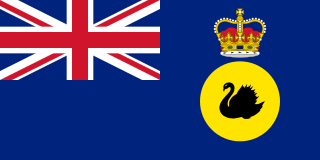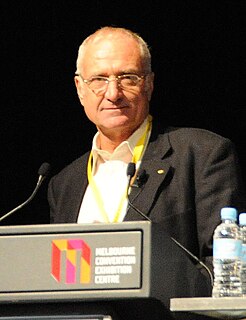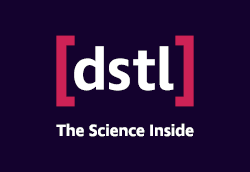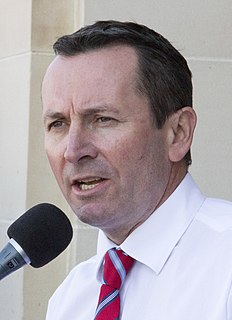Related Research Articles

Kim Christian Beazley is an Australian politician and diplomat who is currently serving as the 33rd governor of Western Australia. He previously served as deputy prime minister of Australia from 1995 to 1996, leader of the Labor Party and leader of the Opposition from 1996 to 2001 and 2005 to 2006, and Ambassador to the United States from 2010 to 2016. He served in multiple roles in the Hawke and Keating Governments from 1983 to 1996.

Carmen Mary Lawrence is an Australian academic and former politician who was the Premier of Western Australia from 1990 to 1993, the first woman to become the premier of an Australian state. A member of the Labor Party, she later entered federal politics as a member of the House of Representatives from 1994 to 2007, and served as a minister in the Keating Government.

The governor of Western Australia is the representative in Western Australia of Elizabeth II as the queen of Australia. As with the other governors of the Australian states, the governor of Western Australia performs constitutional, ceremonial and community functions, including:

Robyn Williams is a British/Australian science journalist and broadcaster who has hosted The Science Show on ABC Radio National (RN) since 1975, and created Ockham's Razor in 1984.

Applecross Senior High School is a public co-educational high school, located in Ardross, a southern suburb of Perth, Western Australia.

The Defence Science and Technology Laboratory (Dstl) is an executive agency of the Ministry of Defence of the United Kingdom. Its stated purpose is "to maximise the impact of science and technology for the defence and security of the UK". The agency is headed by Paul Hollinshead as its Chief Executive,with the board being chaired by Adrian Belton. Ministerial responsibility lies with the Minister for Defence Procurement.

The Beazley Medals are two annual awards awarded by the School Curriculum and Standards Authority. The award is the highest profile and most prestigious academic award for secondary students in Australia. From 2001 onwards, two medals have been awarded each year — one to the top TEE student and one to the top vocational education and training (VET) student.

The Eureka Prizes are awarded annually by the Australian Museum, Sydney, to recognise individuals and organizations who have contributed to science and the understanding of science in Australia. They were founded in 1990 following a suggestion by science journalist Robyn Williams.
The Office of the Chief Scientist (OCS) is part of the Department of Industry, Science, Energy and Resources (As of June 2022. Its primary responsibilities are to enable growth and productivity for globally competitive industries. To help realise this vision, the Department has four key objectives: supporting science and commercialisation, growing business investment and improving business capability, streamlining regulation and building a high performance organisation.

The Minister for Industry and Science is a portfolio in the Government of Australia, which is currently held by Ed Husic in the Albanese ministry since 1 June 2022, following the Australian federal election in 2022.

Alan Simon Finkel is an Australian neuroscientist, inventor, researcher, entrepreneur, educator, policy advisor, and philanthropist. He was Australia’s Chief Scientist from 2016 to 2020. Prior to his appointment, his career included Chancellor of Monash University, President of the Australian Academy of Technology and Engineering (ATSE), and CEO and founder of Axon Instruments, and CTO for the electric car start-up Better Place Australia.

Mark McGowan is an Australian politician, currently serving as the 30th premier of Western Australia since March 2017, and the leader of the Western Australian branch of the Labor Party since January 2012.
Peter Bruce Watson is an Australian politician. He was the Labor Party member of the Western Australian Legislative Assembly from February 2001 to March 2021, representing the electorate of Albany.
Ralph Owen Slatyer was an Australian ecologist, and the first Chief Scientist of Australia from 1989 to 1992.

Pinjarra Senior High School is an independent high school in Pinjarra, a regional centre 86 kilometres (53 mi) south of Perth, Western Australia. The school district covers the Pinjarra and surrounding areas such as Serpentine, Dwellingup, Warrona, North Yunderup and South Yunderup.

The Royal Institution of Australia (RiAus) is a national scientific not-for-profit organisation with a mission to "bring science to people and people to science". It opened in October 2009.
Bruce Edward Hobbs AO FAA FGSAust FTSE is an Australian structural geologist and science administrator. He is a research fellow of the Commonwealth Scientific and Industrial Research Organisation and adjunct professor, University of Western Australia. He was elected a Fellow of the Australian Academy of Science in 1991. He was appointed the first Chief Scientist of Western Australia in 2003 but resigned over fundamental differences with the Carpenter Government in 2006.
Darren Beazley is an Australian businessman and sports administrator.
Professor Lynda (Lyn) Dent Beazley is a neuroscientist and educator based in Perth, Western Australia. She is currently an Honorary Distinguished Fellow at the Institute of Advanced Studies at the University of Western Australia, and the Sir Walter Murdoch Distinguished Professor of Science at Murdoch University. Among other awards, she has been named an Officer of the Order of Australia for her contributions to medical science a Fellow of the Australian Academy of Technology and Engineering and Fellow of the Australian Academy of Science.

Svend Peter Klinken is an Australian medical researcher and academic. He is currently the Chief Scientist of Western Australia. He was appointed a Companion of the Order of Australia (AC) in the June 2017 Queen's Birthday Honours.
References
- 1 2 3 4 "Chief Scientist of Western Australia". Department of Jobs, Tourism, Science and Innovation. Government of Western Australia. Archived from the original on 13 March 2019. Retrieved 11 March 2020.
- 1 2 Klinken, Peter (17 June 2014). "Peter Klinken Appointed New Chief Scientist of WA" (Interview). Interviewed by Ed Williams. Perth, Western Australia: RTRFM. 03:03. Archived from the original on 11 March 2020. Retrieved 11 March 2020.
- 1 2 Klinken, Peter (12 June 2017). "WA's Chief Scientist honoured". Mornings (Interview). Interviewed by Gareth Parker. Perth, Western Australia: 6PR. 7:36. Archived from the original on 11 March 2020. Retrieved 11 March 2020.Additional pages archived on 11 March 2020: MP3 audio file .
- ↑ Hobbs, Bruce (18 April 2006). "Bruce Hobbs". Radio National (Interview). Interviewed by Robyn Williams. Australian Broadcasting Corporation. Retrieved 11 March 2020.
- ↑ Beazley, Lyn (28 April 2007). "WA Chief Scientist Lyn Beazley – her work and aims for science in Western Australia". The Science Show, Radio National (Interview). Interviewed by Robyn Williams. Australian Broadcasting Corporation. Retrieved 11 March 2020.
- 1 2 3 Madden, Catherine (13 December 2006). "WA's new chief scientist announced". ScienceNetwork WA. Archived from the original on 19 July 2008. Retrieved 11 March 2020.
- ↑ Hobbs, Andrew (12 December 2006). "Logan appoints new chief scientist, flags council revamp". Business News. Retrieved 11 March 2020.
- ↑ Beazley, Lyn (28 May 2019). "Western Australia's first female Chief Scientist". 7.30 (Interview). Interviewed by Leigh Sales. Australian Broadcasting Corporation. Archived from the original on 7 July 2019. Retrieved 11 March 2020.
- ↑ Tracey, Mollie (27 June 2019). "Time for ag women to grab all opportunities". Farm Weekly . Fairfax Media. Archived from the original on 11 March 2020. Retrieved 11 March 2020.
- ↑ "Peter Klinken appointed new Chief Scientist of WA". News. The University Of Western Australia. 10 June 2014. Archived from the original on 20 March 2015. Retrieved 11 March 2020.
- ↑ "Klinken appointed WA's new chief scientist". SBS News. Special Broadcasting Service. 10 June 2014. Archived from the original on 11 March 2020. Retrieved 11 March 2020.